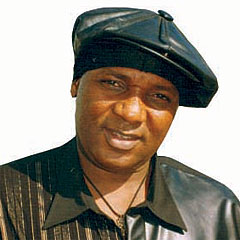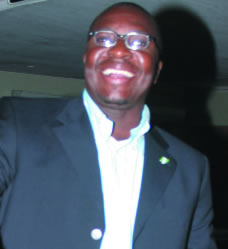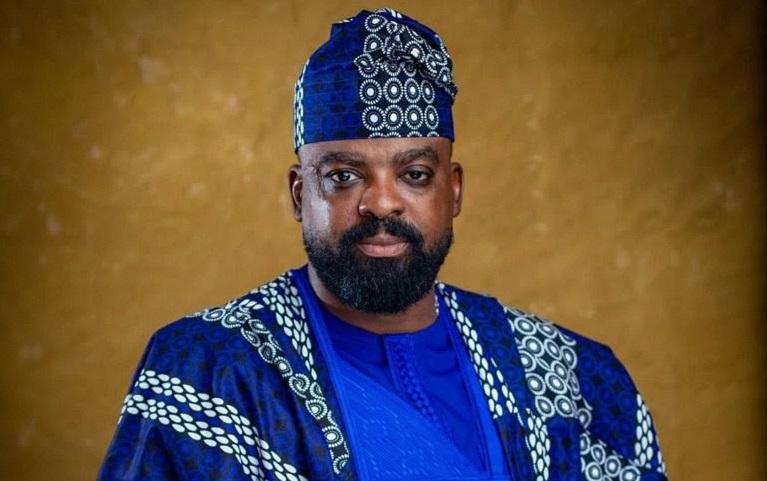
When Mr. Emeka Mba- led National Film and Video Censors Board, NFCVB three years ago introduced the much talked about policy on the distribution, exhibition and marketing of films/movies in Nigeria, the general feeling that trailed the new policy was “mixed.”
While many stakeholders in the the industry welcomed the initiative with warmth, a few others opposed its implementation saying the framework was a ploy to flush them out of business.
Unarguably, before the introduction of the controversial policy, the movie industry was on the verge of collapse practically devoid of any meaningful policy direction.
Mba, at the official launch of the policy in Lagos, in February, 2008, had explained that the distribution framework if properly implemented would go a long way to tackle the problems confronting the growth of the movie industry . He had argued that despite being the third largest film industry in the whole world, Nollywood in its current state, is unstructured, without auditable standards, and has, no necessary alignment to the mainstream economic sectors.
Following the introduction of the new policy, aggrieved stakeholders notably the members of the Film, Video Producers/Marketers Association of Nigeria (FVPMAN), went to court to challenge the board in respect of the implementation of the policy to no avail. Their grievances were premised on the alleged imposition of exorbitant amount as licensing fee, and the mode of implementation of the policy. Also, opposed to the implementation of the policy were actors like Emeka Ike and host of others. Contrary to their hard-line position however, the marketers recently bowed to pressure as they embraced the new initiative.
However, placing the policy on a scale, after one year of its implementation, showed that the new policy has failed to impact positively on the industry. Difficulty and structural imbalance have been traced as being responsible for the inability of the board to successfully implement the policy. But reacting to the observation, NFCVB boss in a recent interview maintained that the distribution framework has not ceased to be operational.
Mba’s position, as far as many observers were concerned was at variance with the strong perception by some stakeholders that the distribution framework has failed. “When the new distribution framework was introduced, we saw it as a way forward for the industry because we knew that distribution is very crucial because the content was getting poor and we were clamouring for a change with the way and manner movies were churned out. We started asking government and meeting regulatory agencies to come in and regulate the industry because the industry has come to stay and that it only needs regulation.” President of Distributors Association of Nigeria, Mr. Gabriel Okoye, alias Gabosky was quoted to have said, in a recent report.
Gabosky was one of the foremost stakeholders who supported the implementation of the policy. He later, disassociated himself from its implementation, because of the alleged inability of the censors board to use the policy to promote meaningful growth and flourishing of the industry .
According to him, “when the new distribution framework was propagated, we embraced it despite the fact that there were a lot of people who were not comfortable with it. But we said ‘lets test it, let’s see the direction it is going to because according to the script, it is going to bring out mega distributors’’ that will take over the distribution and filter down to what is already on ground, community distributors who have only one shop in Alaba, Idumota, Iweka Road or Aba. So we wanted somebody to be at the apex of distribution and become a mega distributor all over the country and then filter down to these community or regional distributors.”
“Along the line, we saw that there was no direction again, that you cannot say you want to create a few mega distributors to service about 20, 30, 50 community distributors we have already and end up creating 100 distributors that are even worse than what we had at the beginning. So we started asking questions. We wanted to know why he refused to licence people like Andy Best, Ossy Affasson and licence actors as distributors.”
“The people you have refused to licence have structures, have shops and now you are licensing people that have no business background, that have nothing, people not even planning to own stores. We asked him ‘‘you said you were planning to create mega distributors, that was the impression you gave to Nigerians and that was what attracted Nu Metro, attracted Transcorp to come and buy into it, attracted people like us.’’ Now he ended up licensing every Tom, Dick and Harry.”
Like Gabosky, Zik Okafor another film producer and former President of the Association of Movie producers recently faulted the management of the censors board, lamenting that since the policy was introduced, the industry has been in a vicious circle.
“I am faulting the policy because more than a year since the framework was introduced by the censors board, the industry has been in a vicious circle.” Okafor’s reaction is coming on the heel of the poor performance recorded by Nollywood movies during this year’s AMAA, which was held in Baylesa State.
Assessing the performance of the policy in the last one year, Okafor in an interview with HVP last week, described the movie industry as one of “a picture of darkness.” He frowned at the manner in which the distribution framework is being implemented in the last one year.
Okafor said, at the outset, many of the stakeholders supported the framework, based on the ground that it would help to bring about the much needed change in the industry. But unfortunately, after one year of its implementation, the story has not changed either.
“Nollywood is rated as the third largest film industry in the whole world. I know that Nollywood has it’s teething problems. But there is a direction. Nollywood has problems in the area of distribution and piracy. Just like piracy, distribution has been an impediment to the growth of the industry.”
“The government agency has set up a distribution channel yet, nothing has changed. Everything looks like an aborted idea. Because even now, the Censors Board has been issuing out licenses to as many as 200 distributors, some of who don’t have clear direction in respect of where they are going to market the films.
They don’t have outlet anywhere. So, we are back to the same problem that we faced in the past. Indeed, without good distribution channel, viewing centres and eradicating the menace of piracy, Nollywood will continue to be in dilemma. Unless these problems are addressed, Nollywood would continue to suffer a tragic fate.”
“Of course, I’m faulting the policy. The film distribution framework of Emeka Mba led Censors board is a shattered dream, and offers only a blinking hope.
When it was first introduced, we thought it was going to mark a turning point in the industry. We were hopeful and equally gave our support to the management of NFVCB. However, more than a year since the framework was introduced, nothing seemed to have changed.”
In a nutshell, the hope of Emeka Mba’s theory of distribution framework holds for us has been shattered. Right now, I say it categorically that Nollywood is confused with regard to the distribution framework.
“I will not sit in my office here and proffer a solution to the distribution channel initiated by the censors board, because I have not been given a chance to understudy the framework. But if I am challenged, I will go back to my shell to conduct a research before coming up with a positive solution.
I suggest that Emeka Mba and his team should go back and reorganize themselves and wear their thinking cap. They should embark on a retreat to finetune their ideas and cover up all the loopholes to avoid being misunderstood by the stakeholders




















